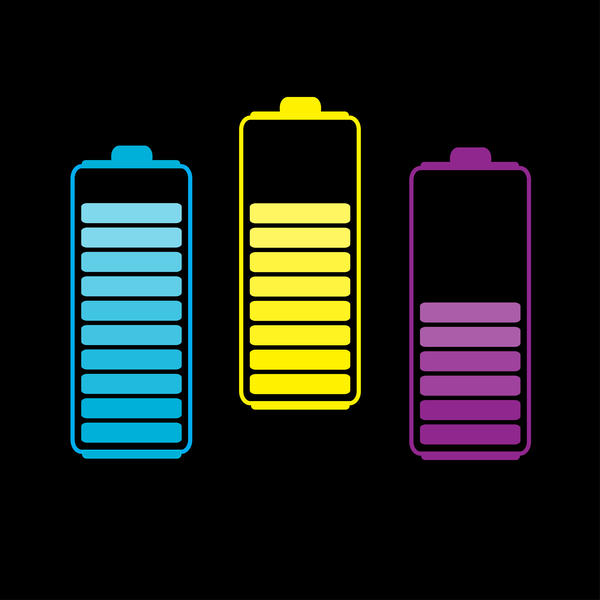Scientists build a battery that charges 70 percent in two minutes and lasts for 20 years


A free daily email with the biggest news stories of the day – and the best features from TheWeek.com
You are now subscribed
Your newsletter sign-up was successful
Get ready: In the near future, you may be able to charge your dead smartphone to mostly full during a single commercial break; your Tesla's range will go from zero to hundreds of miles in the parking lot while you make a quick grocery run; and — best of all — your devices won't need replacement batteries for two decades.
Scientists at Nanyang Technological University in Singapore hacked the lithium-ion battery's charging mechanism, replacing the traditional lithium-ion's graphite anode with a gel made from titanium oxide, a food and sunscreen additive found in abundance in soil. A new technique transformed the gel's titanium dioxide particles from spherically-shaped to ultra-thin nanotubes, speeding up the chemical reactions that charge the battery while increasing its longevity to 10,000 charging cycles — 20 times the typical 500 cycles of current battery technology.
Because the prototype uses so much existing technology, it may be possible to deliver the super-charged lithium-ion battery to market in just a couple of years. Until then, daydream about our ultra-efficient, electric-powered future while you stare at your plugged-in iPhone and impatiently wait for the rest of your life to begin.
The Week
Escape your echo chamber. Get the facts behind the news, plus analysis from multiple perspectives.

Sign up for The Week's Free Newsletters
From our morning news briefing to a weekly Good News Newsletter, get the best of The Week delivered directly to your inbox.
From our morning news briefing to a weekly Good News Newsletter, get the best of The Week delivered directly to your inbox.
A free daily email with the biggest news stories of the day – and the best features from TheWeek.com
Mike Barry is the senior editor of audience development and outreach at TheWeek.com. He was previously a contributing editor at The Huffington Post. Prior to that, he was best known for interrupting a college chemistry class.
-
 What to know before filing your own taxes for the first time
What to know before filing your own taxes for the first timethe explainer Tackle this financial milestone with confidence
-
 The biggest box office flops of the 21st century
The biggest box office flops of the 21st centuryin depth Unnecessary remakes and turgid, expensive CGI-fests highlight this list of these most notorious box-office losers
-
 The 10 most infamous abductions in modern history
The 10 most infamous abductions in modern historyin depth The taking of Savannah Guthrie’s mother, Nancy, is the latest in a long string of high-profile kidnappings
-
 Blue Origin launches Mars probes in NASA debut
Blue Origin launches Mars probes in NASA debutSpeed Read The New Glenn rocket is carrying small twin spacecraft toward Mars as part of NASA’s Escapade mission
-
 Dinosaurs were thriving before asteroid, study finds
Dinosaurs were thriving before asteroid, study findsSpeed Read The dinosaurs would not have gone extinct if not for the asteroid
-
 SpaceX breaks Starship losing streak in 10th test
SpaceX breaks Starship losing streak in 10th testspeed read The Starship rocket's test flight was largely successful, deploying eight dummy satellites during its hour in space
-
 Rabbits with 'horns' sighted across Colorado
Rabbits with 'horns' sighted across Coloradospeed read These creatures are infected with the 'mostly harmless' Shope papilloma virus
-
 Lithium shows promise in Alzheimer's study
Lithium shows promise in Alzheimer's studySpeed Read Potential new treatments could use small amounts of the common metal
-
 Scientists discover cause of massive sea star die-off
Scientists discover cause of massive sea star die-offSpeed Read A bacteria related to cholera has been found responsible for the deaths of more than 5 billion sea stars
-
 'Thriving' ecosystem found 30,000 feet undersea
'Thriving' ecosystem found 30,000 feet underseaSpeed Read Researchers discovered communities of creatures living in frigid, pitch-black waters under high pressure
-
 New York plans first nuclear plant in 36 years
New York plans first nuclear plant in 36 yearsSpeed Read The plant, to be constructed somewhere in upstate New York, will produce enough energy to power a million homes
